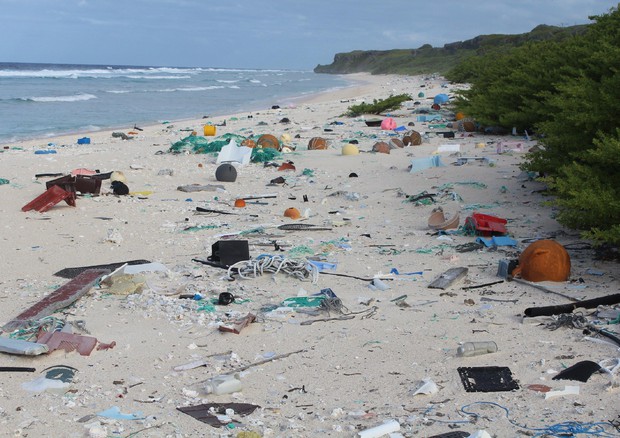The U.S. coastlines are finally breathing easier thanks to regulations that limit the use of plastic bags. According to a recent study published in the prestigious scientific journal Science, the introduction of bans and fees at local and state levels has led to a reduction of between 25% and 47% in the presence of such waste during coastal cleanups. Single-use bags, known for their low recycling rates and their tendency to easily disperse into the environment, represent one of the main sources of pollution threatening marine wildlife.
Researchers analyzed over 45,000 data collection events through an app called Clean Swell, comparing areas with and without environmental policies, and highlighted how stricter measures adopted in states with specific regulations had a particularly significant impact. Fees, in particular, appear more effective than simple bans, contributing to a steady and progressive decline over time in the amount of items found on beaches.
Environmental economist Anna Papp, co-author of the investigation, emphasized that the results clearly indicate the widespread effectiveness of these policies in limiting the amount of plastic waste, while also noting that this is a relative reduction compared to areas without regulations. At the same time, the presence of animals entangled in plastic waste has also decreased, although the authors suggest interpreting these latest observations with caution due to potential data inaccuracies.
Despite the progress, experts warn that the problem of plastic pollution is far from solved and continues to grow globally. Kimberly Oremus, a marine science professor, as also highlighted in the online publication The Hill, pointed out that plastic bags, while among the most harmful and visible items, are not the only dispersed source, and that the goal is to slow, rather than completely eliminate, the spread of this waste.
With new international negotiations initiated by the United Nations Environment Programme approaching, the study’s authors remain hopeful that broader and more coordinated policies will ensure an even greater impact in the fight against marine pollution. Meanwhile, the scientific evidence confirms that the measures already in place, although not fully resolving the situation, represent an important step toward cleaner coastlines and a healthier ecosystem.












